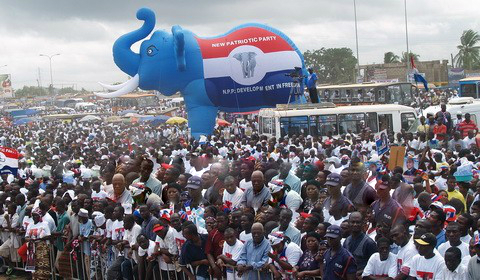A prominent Ghanaian businessman, widely known for his longstanding sympathies toward the New Patriotic Party (NPP), said something striking to me recently. He told me that with the exit of the previous regime, he finally feels liberated. Liberated from years of silence, frustration, and moral conflict. Ironically, this is a man who contributed generously to that very regime’s campaign, believing, like many others, in the party’s promise of competence, reform, and progress.
He’s not alone.
Over the past few months, I’ve heard similar sentiments from others. Entrepreneurs, professionals, volunteers, and grassroots supporters who once gave their all to the party. Many now feel disillusioned. They were not just disappointed by policies or mismanagement, but by a party culture that grew increasingly closed, transactional, and unrecognisable from the movement they joined in years past.
These people didn’t walk away with noise. They drifted in silence. Demoralised, but loyal. Bruised, but patient. Now that the administration has exited power, they feel free to speak. And what they are saying should concern every serious reformist within the NPP.
But disturbingly, there is a small and noisy minority, mostly those who were well-greased appointees or direct beneficiaries of the very system that bred this mess, who now seek to downplay, dismiss, or gag these legitimate expressions of disappointment. Cloaked in false loyalty, they try to rewrite history, spin failure as success, and silence critique under the guise of party unity. They parade as defenders of the party, but in truth, they are its greatest liability because they refuse to acknowledge the pain of the majority.
Let us be clear. Gaslighting loyal supporters is not party discipline. It is political cowardice. And any revival effort built on denial or revisionism is doomed from the start.
The tragedy is not only that the party lost power. It is that it lost the trust of its most valuable supporters, the very people who once carried it on their backs. People who gave money not for contracts, but for conviction. People who campaigned not for positions, but because they believed the NPP was different.
If the NPP truly wants to revive and rebuild, it must start here.
It must reconnect with this silent, disappointed base and acknowledge the culture of exclusion, entitlement, and political opportunism that alienated so many. Internal renewal is not just about electing new national executives or crafting new slogans. It must be about restoring meaning and merit so that the party once again becomes a natural home for Ghana’s most capable, idealistic, and hardworking citizens.
It is time to stop pretending the party’s problems are merely electoral. The rot was internal long before the results showed it.
A winning campaign must be built on believable values, and the first step toward that is rebuilding trust within. Not just among party executives, but with the men and women who once believed enough to give, serve, and sacrifice.
The NPP needs them now more than ever. But more importantly, it must earn them back.
By One Ato




